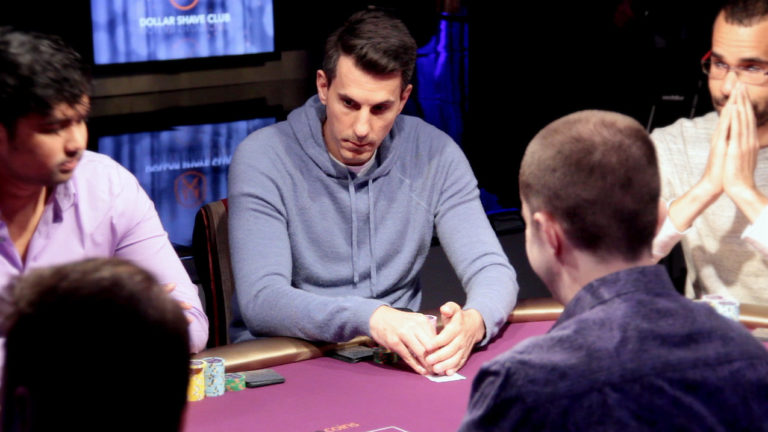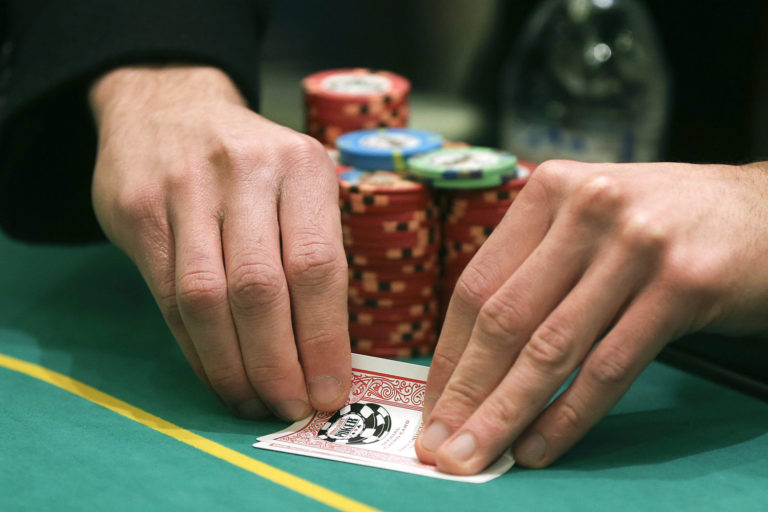Poker is a popular game that can be enjoyed by all levels of players, from complete beginners to experienced professionals. Players are dealt cards and must make choices about how to play their cards in order to win the pot. However, even top poker players can lose matches if they don’t play smart.
Contents
Poker hands

Source: habwin.com
A poker hand is a collection of five cards, face down, arranged in a particular way. The object of the game is to score points by making better hands than your opponents. You can play this game in casinos or online at casinoonlinein.com. There are two types of hands – straights and flushes – and each has its own special rules.
Straights are five cards of the same rank, such as 2s, 3s, 4s, and 5s. A straight is worth 10 points.
Flushes are four cards of the same rank, such as 2s, 3s, 4s, and 5c. A flush is worth 25 points.
To make a hand, you must have at least two cards of the same rank. If you have three or more cards of the same rank, you make a full house (three of a kind plus one additional card). If you have two cards of the same rank and one other card that doesn’t belong to any of the above categories, you make a straight (two cards of the same rank plus one additional card).
In order to win a poker hand, you must beat your opponent’s combined points total. For example, if there are three players and player A has a straight (2s, 3s, 4s), player B has a flush (5c, J, 2d), and player C has a full house (3 of a kind, 2d, J), then player A would win because player B’s total points are greater than player A’s.
Another way to explain hands is to divide them into 4 categories: pocket kings (a pair of jacks or better), pocket queens (a pair of queens or better), two pairs (a pair of two different card numbers), and Aces high (one ace).
Each hand contains either two pocket kings, two pocket queens, a two-pair, an Aces high, or another more complex hand. Pocket kings and pocket queens are the most common hands because they result in the highest scores. Two pair is the second most common because it gives the player two pairs (e.g., jacks and queens or Kings and tens). An Aces high is the third most common because it results in a straight (e.g., three cards with one number each)or a flush (five cards with the same number). Other more complex hands, like straights and flushes, are less common because they don’t always result in high scores.
The Duration of a Professional Poker Match

Source: PokerVIP.com
A professional poker match can last anywhere from three to six hours, depending on the number of hands played and the skill level of the players.
The length of a poker match is largely determined by how many hands are played. A typical poker match will consist of 10 hands, with each hand lasting around two hours. If there are also betting rounds, the game can last up to eight hours.
Knowing how long a poker match will last is important because it affects your decision-making process. If you know that the match will last four hours, you’re likely going to play more conservatively than if the match is estimated to last for only an hour and a half. This allows you to remain in the game for a longer period of time and increase your chances of winning.
The Major Variables That Influence the Length of a Poker Match
The number of hands that are played is one major variable that can influence the length of a poker match. If two players are playing a six-handed game, for example, then each player will play three hands. If one player has a better hand after playing three hands, then that player may try to force a five-handed game in order to gain an advantage over the other players. If there are only two players playing, however, then each player will play only one hand. This means that the winner of each hand will be determined relatively quickly, which can make for a more exciting game.
Another major variable that can influence the length of a match is how much money is being wagered on each hand. If someone is betting $10 per hand, for example, then the game will last longer than if someone is betting $1 per hand. The amount of money that is being wagered also affects the number of hands that are played. If there are only two players playing, for example, and one player has a better hand after playing three cards, then the other player may choose to fold instead of trying to win more money.
The type of poker that is being played also affects the length of a match. Five-card draw, for example, is a slower game than poker with higher stakes. This means that the winner of each hand will be determined more slowly and the game may last longer overall.
How to become a professional?

Source: toronto.com
Learning how to play poker is a skill that can be learned quickly and easily, but it takes dedication and effort to become a professional player. There are many things that you will need in order to succeed, including the ability to think ahead, stay calm under pressure, and make sound decisions. Here are five tips that will help you on your way to becoming a professional:
- Start by learning the basics. Learn all of the different types of hands and how to play them. Practice playing against realistic opponents until you feel comfortable with your skills.
- Stay positive. One of the keys to becoming a successful poker player is maintaining a positive attitude. If you can remain positive under pressure, you will be able to make better decisions and cope better with difficult situations.
- Make sound decisions. This means knowing when to push hard for pot odds and when to fold your hand early in order to avoid getting stuck in bad positions.
- Think ahead. Thinking ahead means being able to figure out what other players are likely to do next and plan your moves accordingly.
- Be prepared for surprises. Poker is a game of risk and chance, and there are always going to be surprises waiting for you. Be prepared for them by keeping a well-rounded strategy and by practicing regularly.
Conclusion
Professional poker matches can last anywhere from two hours to several days, and the best hands are usually decided within the first few hours of play. The competition is fierce, and with so much money on the line, players will do whatever it takes to win. If you’re interested in playing a high-stakes game of poker, be prepared to put in many long hours at the tables.
